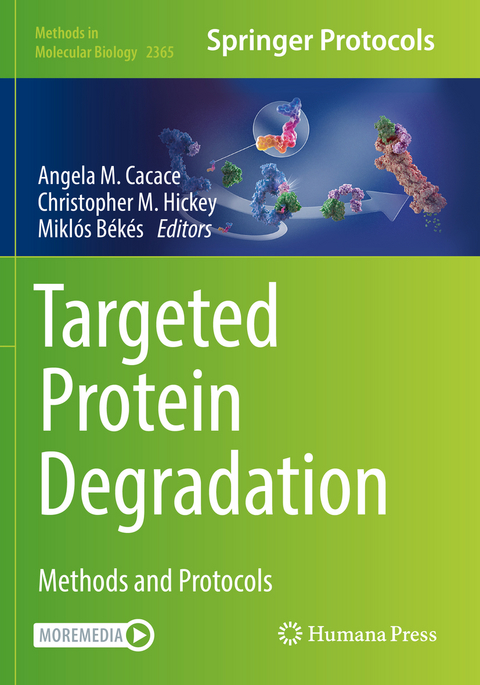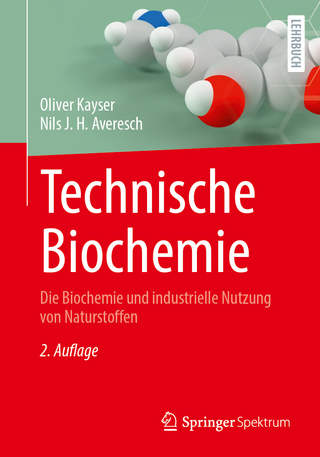
Targeted Protein Degradation
Springer-Verlag New York Inc.
978-1-0716-1667-3 (ISBN)
Authoritative and cutting-edge, Targeted Protein Degradation: Methods and Protocols aims to ensure successful results in this emerging field of drug discovery.
Protein Ligand Interactions Using Surface Plasmon Resonance.- High-Throughput Detection of Ligand-Protein Binding using a SplitLuc Cellular Thermal Shift Assay.- Proteins and their Interacting Partners: An Introduction to Protein-Ligand Binding Site Prediction Methods with a Focus on FunFOLD3.- Evaluating ligands for ubiquitin ligases using affinity beads.- Mechanistic and Structural Features of PROTAC Ternary Complexes.- MST and TRIC Technology to Reliably Study PROTAC Binary and Ternary Binding In Drug Development.- An in vitro Pull-down Assay of the E3 ligase:PROTAC:Substrate Ternary Complex to Identify Effective PROTACs.- Kinetic detection of E3: PROTAC: Target Ternary Complexes using NanoBRET technology in Live Cells.- Inducing Ubiquitylation and Protein Degradation as a Drug Development Strategy.- Methodological Versatility of Tandem Ubiquitin Binding Entities (TUBEs) for Understanding Poly-ubiquitination and its Various Chains.- Global Mass Spectrometry-Based Analysis of Protein Ubiquitination Using K-e-GG Remnant Antibody Enrichment.- Determination of Proteasomal Unfolding Ability.- Methods for Quantitative Assessment of Protein Degradation.- A High Throughput method to prioritize PROTAC intracellular target engagement and cell permeability using NanoBRET.- Profiling CELMoD Mediated Degradation of Cereblon Neosubstrates.- Global Proteome Profiling to Assess Changes in Protein Abundance using Isobaric Labeling and Liquid Chromatography Tandem Mass Spectrometry.- PHOTACs Enable Optical Control of Protein Degradation.- Protocols for synthesis of SNIPERs and the methods to evaluate the anti-cancer affects.
| Erscheinungsdatum | 30.08.2022 |
|---|---|
| Reihe/Serie | Methods in Molecular Biology ; 2365 |
| Zusatzinfo | 50 Illustrations, color; 17 Illustrations, black and white; XI, 351 p. 67 illus., 50 illus. in color. |
| Verlagsort | New York, NY |
| Sprache | englisch |
| Maße | 178 x 254 mm |
| Themenwelt | Medizin / Pharmazie ► Pharmazie |
| Naturwissenschaften ► Biologie ► Biochemie | |
| Naturwissenschaften ► Chemie | |
| Technik | |
| Schlagworte | Ligand binders • poly-ubiquitin chains • Protein Misfolding • Small molecule approaches • structure determination |
| ISBN-10 | 1-0716-1667-6 / 1071616676 |
| ISBN-13 | 978-1-0716-1667-3 / 9781071616673 |
| Zustand | Neuware |
| Informationen gemäß Produktsicherheitsverordnung (GPSR) | |
| Haben Sie eine Frage zum Produkt? |
aus dem Bereich


